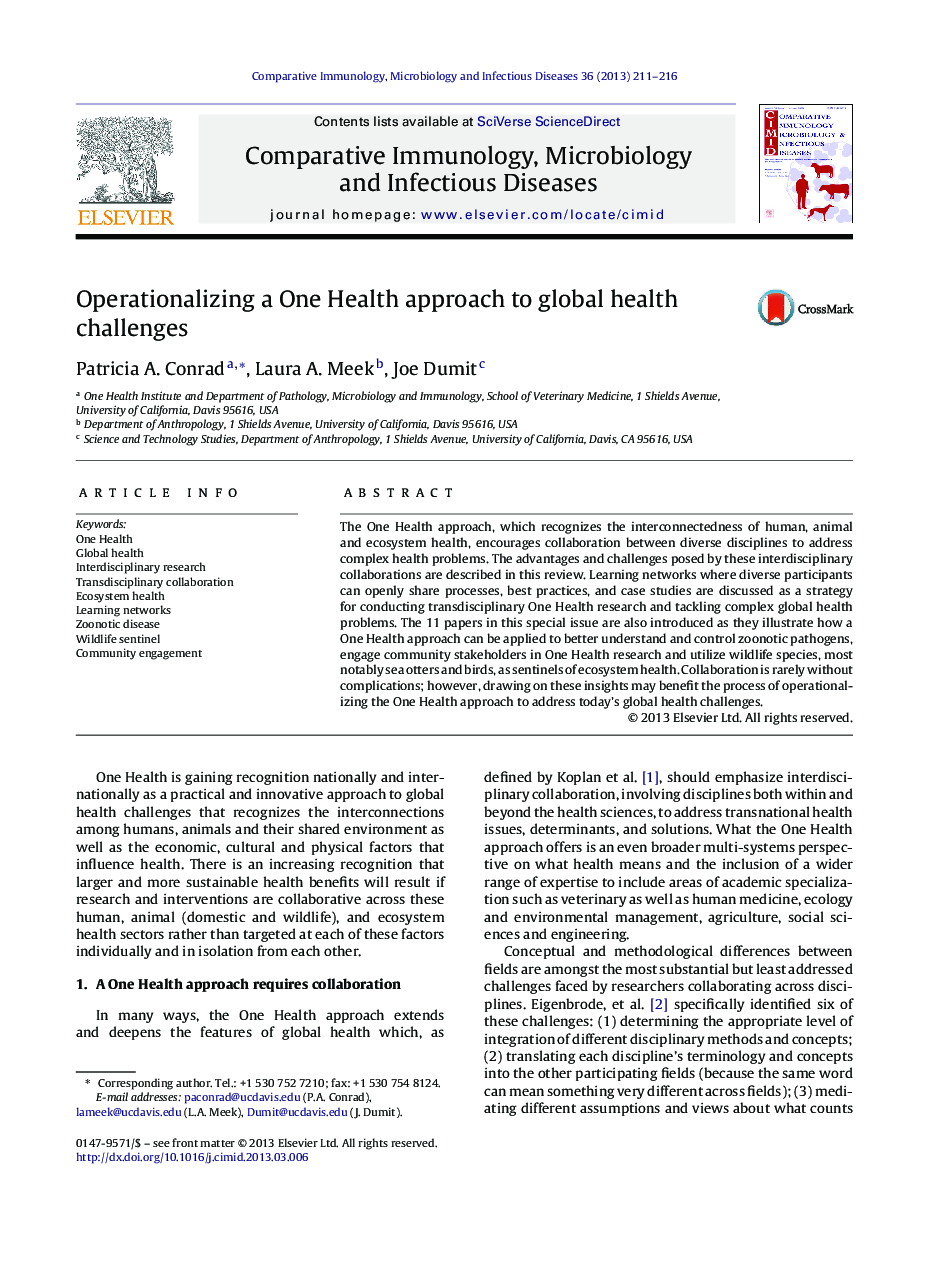| Article ID | Journal | Published Year | Pages | File Type |
|---|---|---|---|---|
| 10971336 | Comparative Immunology, Microbiology and Infectious Diseases | 2013 | 6 Pages |
Abstract
The One Health approach, which recognizes the interconnectedness of human, animal and ecosystem health, encourages collaboration between diverse disciplines to address complex health problems. The advantages and challenges posed by these interdisciplinary collaborations are described in this review. Learning networks where diverse participants can openly share processes, best practices, and case studies are discussed as a strategy for conducting transdisciplinary One Health research and tackling complex global health problems. The 11 papers in this special issue are also introduced as they illustrate how a One Health approach can be applied to better understand and control zoonotic pathogens, engage community stakeholders in One Health research and utilize wildlife species, most notably sea otters and birds, as sentinels of ecosystem health. Collaboration is rarely without complications; however, drawing on these insights may benefit the process of operationalizing the One Health approach to address today's global health challenges.
Keywords
Related Topics
Life Sciences
Agricultural and Biological Sciences
Animal Science and Zoology
Authors
Patricia A. Conrad, Laura A. Meek, Joe Dumit,
